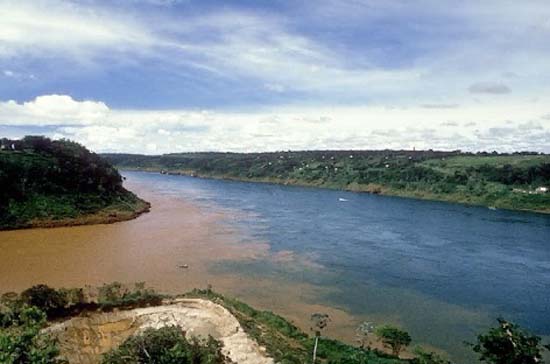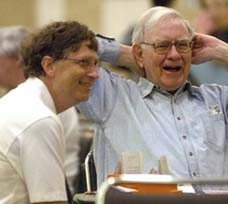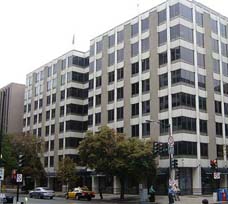2006.06.29: June 29, 2006: Headlines: COS - Paraguay: COS - Guatemala: Crisis Corps: Peace Corps: Leo Redmond served as a Peace Corps volunteer in Paraguay (2002-04) and is currently a Crisis Corps volunteer serving in Guatemala
Peace Corps Online:
Directory:
Paraguay:
Peace Corps Paraguay:
The Peace Corps in Paraguay:
2006.06.29: June 29, 2006: Headlines: COS - Paraguay: COS - Guatemala: Crisis Corps: Peace Corps: Leo Redmond served as a Peace Corps volunteer in Paraguay (2002-04) and is currently a Crisis Corps volunteer serving in Guatemala
Leo Redmond served as a Peace Corps volunteer in Paraguay (2002-04) and is currently a Crisis Corps volunteer serving in Guatemala

"I am currently serving as an agroforestry Crisis Corps volunteer in the town of Tacana, San Marcos which is located 50 km south of the Mexican border in the southwestern highlands of Guatemala. I help to coordinate the reforestation efforts of the NGO CARE Guatemala and the local Tacana Forestry Office in a dozen rural communities hardest hit by Hurricane Stan. "
Leo Redmond served as a Peace Corps volunteer in Paraguay (2002-04) and is currently a Crisis Corps volunteer serving in Guatemala
Leo Redmond, Post-Hurricane Stan Disaster Preparedness: Guatemala, 2006
Leo Redmond, 25, of Rockaway, N.J., served as a Peace Corps volunteer in Paraguay (2002-04) and is currently a Crisis Corps volunteer serving in Guatemala, working with CARE on an agro-forestry project following the devastation of Hurricane Stan.
“Whereas one’s Peace Corps experience is an extremely decelerated process emphasizing the fundamentals of building community relationships, a Crisis Corps experience has a more heightened, task oriented feel to it. In effect, the Crisis Corps is the ultimate extension of resource identification and allocation: matching the linguistic and technical skill sets of returned Peace Corps volunteers with individuals, communities and countries that need them most.
“Like the Peace Corps, the Crisis Corps is a statement by America, that we as Americans are present, both in times of joy as well as times of sadness, in the lives of our fellow human beings. Through our service, we are able to put a human face, touch, and character to the intangible tenets which make up the United States of America.
“I am currently serving as an agroforestry Crisis Corps volunteer in the town of Tacana, San Marcos which is located 50 km south of the Mexican border in the southwestern highlands of Guatemala. I help to coordinate the reforestation efforts of the NGO CARE Guatemala and the local Tacana Forestry Office in a dozen rural communities hardest hit by Hurricane Stan.
“Stan’s week long rainy presence over this remote mountainous region during the first week in October 2005 caused massive and widespread mudslides that destroyed houses, water systems, roads and bridges and turned countless hectares of arable land into a waste land of rocks and debris. Working along side two other Crisis Corps volunteers, civil engineer Ken Kartchner and live stock specialist Wayne Winzer, as well as resident Agroforestry Peace Corps volunteer Eric Black, our multidisciplinary team has been able to address some of the more pressing concerns of post hurricane recovery: bringing potable water systems back on line, increasing food security through small scale chicken and pig projects and land recuperation through the establishment of agroforestry systems.
“Throughout the last three months I have found myself in the fortunate position of being able to provide meaningful technical support while sharing in the daily lives of rural community members as they summon the strength to pick up the pieces of their shattered lives and move forward with hope and purpose. To put it simply it is a sight to see and a lesson to be learned by all of us.
“As always in one’s Peace Corps experience, Crisis Corps experience and the experience of life overall, the learning curve is steep but the return on investment is more than fulfilling if one is keen enough to realize which currencies are of true value.
“As they say: Life is an everyday affair.”
Crisis Corps Celebrates Decade of High-Impact Relief Work

Caption: Crisis Corps Volunteers worked in Thailand after the Tsunami in December 2004.
“A decade ago, Crisis Corps was a budding notion and today it is an essential cornerstone of Peace Corps’ contribution to the world, one that demonstrates our ability to adapt to change and respond nimbly to various challenges around the globe, and even here on American soil,” said Gaddi H. Vasquez, director of the Peace Corps.
On December 4, 1995, Peace Corps Director Mark Gearan sent Peace Corps volunteers to the island of Antigua to help rebuild homes damaged or destroyed by Hurricane Luis. This pilot effort marked what came to be known as the “Crisis Corps,” a new program within the agency that enables experienced Peace Corps volunteers to respond to humanitarian crises and natural disasters. Using the language, technical and cross-cultural skills gained through Peace Corps service and other professional experience, the Crisis Corps allows former or returned volunteers desiring to continue their service to return to the field in short-term, high-impact assignments that typically range from three to six months.
On June 19, 1996, President Clinton honored the Peace Corps at a Rose Garden ceremony reuniting the first group of volunteers who left for Ghana 35 years earlier, and a new group just about to leave for Ghana. During the ceremony, President Clinton formally announced the creation of the Crisis Corps program. Later that year, the first official Crisis Corps volunteers were sent to the Czech Republic to work on environ-mental issues following severe floods.
Where Crisis Corps Has Served

Caption: The Crisis Corps Office emailed over 2400 Returned Peace Corps Volunteers to gauge their interest in volunteering for recovery efforts after Hurricane Katrina. Over 400 responses were received from that initial email. The first group of Crisis Corps Volunteers traveled to the FEMA staging area in Orlando, Florida to receive training and their assignments.
Crisis Corps volunteers have served throughout the world in a variety of capacities.
In Africa, Crisis Corps volunteers have worked in the fields of humanitarian assistance, HIV/AIDS, natural disaster relief and reconstruction, disaster preparedness and mitigation, post-conflict relief and reconstruction. They have volunteered in Cameroon, Côte d'Ivoire, Democratic Republic of Congo, Ghana, Guinea, Kenya, Lesotho, Madagascar, Malawi, Mauritania, Mozambique, Namibia, South Africa, Tanzania Togo and Zambia.
In Asia, volunteers have been involved in humanitarian assistance, natural disaster relief and reconstruction in Thailand and Sri Lanka following the 2004 tsunami. In the Caribbean, Crisis Corps volunteers have worked in humanitarian assistance, HIV/AIDS, natural disaster relief and reconstruction, disaster preparedness and mitigation, post-conflict relief and reconstruction in Antigua, Dominican Republic, Haiti, Jamaica and Montserrat.
Latin America has also benefited enormously from the work of Crisis Corps volunteers. Working in the areas of humanitarian assistance, HIV/AIDS, natural disaster relief and reconstruction, disaster preparedness and mitigation, post-conflict relief and reconstruction, volunteers have served in Belize, Bolivia, Chile, Ecuador, El Salvador, Guatemala, Honduras, Nicaragua, Paraguay, Suriname and Venezuela.
In the Pacific Islands, volunteers have worked in humanitarian assistance, HIV/AIDS, natural disaster relief and reconstruction, disaster preparedness and mitigation, post-conflict relief and reconstruction in the Cook Islands, Federated States of Micronesia, Palau and Papua New Guinea.
Since Crisis Corps' inception in 1996, 1000 returned Peace Corps volunteers have taken the opportunity to use their invaluable skills and experience to address ongoing community needs in 42 different countries. Crisis Corps volunteers work on short term projects, utilizing the skills they learned as Peace Corps volunteers and in post service careers. To learn more about the Peace Corps’ Crisis Corps program, visit the Peace Corps Web site.
When this story was posted in August 2006, this was on the front page of PCOL:





Peace Corps Online The Independent News Forum serving Returned Peace Corps Volunteers
 | Peace Corps' Screening and Medical Clearance
The purpose of Peace Corps' screening and medical clearance process is to ensure safe accommodation for applicants and minimize undue risk exposure for volunteers to allow PCVS to complete their service without compromising their entry health status. To further these goals, PCOL has obtained a copy of the Peace Corps Screening Guidelines Manual through the Freedom of Information Act (FOIA) and has posted it in the "Peace Corps Library." Applicants and Medical Professionals (especially those who have already served as volunteers) are urged to review the guidelines and leave their comments and suggestions. Then read the story of one RPCV's journey through medical screening and his suggestions for changes to the process. |
 | Gates charity races to spend billions
Warren E. Buffett’s gift of $31 billion to the Bill and Melinda Gates Foundation means that for tax reasons, starting in 2009, the foundation must distribute $3 billion annually, or a little more than twice what it distributed last year.
PCOL Comment: The Foundation says that "preventing the spread of HIV is the most durable long-term solution to the AIDS epidemic, and a top priority for the foundation." Peace Corps Volunteers and Returned Volunteers have been doing just that in AIDS Education for the past 15 years. Why not consider a $100M annual contribution to the Peace Corps to put 2,500 additional volunteers in the field to expand AIDS education worldwide? |
 | The Peace Corps is "fashionable" again
The LA Times says that "the Peace Corps is booming again and "It's hard to know exactly what's behind the resurgence." PCOL Comment: Since the founding of the Peace Corps 45 years ago, Americans have answered Kennedy's call: "Ask not what your country can do for you--ask what you can do for your country. My fellow citizens of the world: ask not what America will do for you, but what together we can do for the freedom of man." Over 182,000 have served. Another 200,000 have applied and been unable to serve because of lack of Congressional funding. The Peace Corps has never gone out of fashion. It's Congress that hasn't been keeping pace. |
 | Changing the Face of Hunger
In his new book, Former Congressman Tony Hall (RPCV Thailand) says humanitarian aid is the most potent weapon the United States can deploy against terrorism. An evangelical Christian, he is a big believer in faith-based organizations in the fight against hunger. Members of Congress have recently recommended that Hall be appointed special envoy to Sudan to focus on ending the genocide in Darfur. |
 | PC will not return to East Timor in 2006
Volunteers serving in East Timor have safely left the country as a result of the recent civil unrest and government instability. Latest: The Peace Corps has informed us that at this time, the Peace Corps has no plans to re-enter the country in 2006. The Peace Corps recently sent a letter offering eligible volunteers the opportunity to reinstate their service in another country. |
 | Chris Dodd considers run for the White House
Senator Chris Dodd plans to spend the next six to eight months raising money and reaching out to Democrats around the country to gauge his viability as a candidate. Just how far Dodd can go depends largely on his ability to reach Democrats looking for an alternative to Hillary Clinton. PCOL Comment: Dodd served as a Volunteer in the Dominican Republic and has been one of the strongest supporters of the Peace Corps in Congress. |
 | Vasquez testifies before Senate Committee
Director Vasquez testifies before the Senate Foreign Relations Committee on his nomination as the new Representative to the United Nations Agencies for Food and Agriculture replacing Tony Hall. He has been the third longest serving Peace Corps Director after Loret Ruppe Miller and Sargent Shriver. PCOL Comment: Read our thanks to Director Vasquez for his service to the Peace Corps. |
 | Peace Corps stonewalls on FOIA request
The Ashland Daily Tidings reports that Peace Corps has blocked their request for information on the Volkart case. "After the Tidings requested information pertaining to why Volkart was denied the position — on March 2 — the newspaper received a letter from the Peace Corps FOIA officer stating the requested information was protected under an exemption of the act." The Dayton Daily News had similar problems with FOIA requests for their award winning series on Volunteer Safety and Security. |
 | PCOL readership increases 100%
Monthly readership on "Peace Corps Online" has increased in the past twelve months to 350,000 visitors - over eleven thousand every day - a 100% increase since this time last year. Thanks again, RPCVs and Friends of the Peace Corps, for making PCOL your source of information for the Peace Corps community. And thanks for supporting the Peace Corps Library and History of the Peace Corps. Stay tuned, the best is yet to come. |
 | History of the Peace Corps
PCOL is proud to announce that Phase One of the "History of the Peace Corps" is now available online. This installment includes over 5,000 pages of primary source documents from the archives of the Peace Corps including every issue of "Peace Corps News," "Peace Corps Times," "Peace Corps Volunteer," "Action Update," and every annual report of the Peace Corps to Congress since 1961. "Ask Not" is an ongoing project. Read how you can help. |
 | RPCV admits to abuse while in Peace Corps
Timothy Ronald Obert has pleaded guilty to sexually abusing a minor in Costa Rica while serving there as a Peace Corps volunteer. "The Peace Corps has a zero tolerance policy for misconduct that violates the law or standards of conduct established by the Peace Corps," said Peace Corps Director Gaddi H. Vasquez. Could inadequate screening have been partly to blame? Mr. Obert's resume, which he had submitted to the Peace Corps in support of his application to become a Peace Corps Volunteer, showed that he had repeatedly sought and obtained positions working with underprivileged children. Read what RPCVs have to say about this case. |
 | Why blurring the lines puts PCVs in danger
When the National Call to Service legislation was amended to include Peace Corps in December of 2002, this country had not yet invaded Iraq and was not in prolonged military engagement in the Middle East, as it is now. Read the story of how one volunteer spent three years in captivity from 1976 to 1980 as the hostage of a insurrection group in Colombia in Joanne Marie Roll's op-ed on why this legislation may put soldier/PCVs in the same kind of danger. Latest: Read the ongoing dialog on the subject. |
Read the stories and leave your comments.

Some postings on Peace Corps Online are provided to the individual members of this group without permission of the copyright owner for the non-profit purposes of criticism, comment, education, scholarship, and research under the "Fair Use" provisions of U.S. Government copyright laws and they may not be distributed further without permission of the copyright owner. Peace Corps Online does not vouch for the accuracy of the content of the postings, which is the sole responsibility of the copyright holder.
Story Source: Peace Corps
This story has been posted in the following forums: : Headlines; COS - Paraguay; COS - Guatemala; Crisis Corps
PCOL33391
11



























